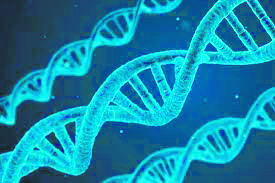
According to the lead researcher, a single treatment with a groundbreaking gene-editing therapy changed the lives of a group of patients suffering from a hereditary ailment.
Patients from New Zealand, the Netherlands, and the United Kingdom have hereditary angioedema, a genetic disease that causes severe, painful, and sudden swelling attacks. These disturb normal activities and have the potential to cause airway damage and death.
Researchers from the University of Auckland, Amsterdam University Medical Center, and Cambridge University Hospitals have successfully treated over ten patients with CRISPR/Cas9 technology, with preliminary findings just published in a leading journal.
“It looks as if the single-dose treatment will provide a permanent cure for my hereditary angioedema patients’ very disabling symptoms,” said principal investigator Dr Hilary Longhurst, who is both a clinical immunologist at Auckland Hospital Te Toku Tumai and an honorary associate professor at the University of Auckland.
“Plus, of course, there is huge potential for development of similar CRISPR/Cas9 treatments for other genetic disorders.”
Globally, it is estimated one in 50,000 people have hereditary angioedema, however, because it is rare, it is often not correctly diagnosed.
In the phase one study, there were no serious or lasting side effects from the single infusion, which took place over two to four hours under clinical supervision from late 2021 and onwards.
The investigational therapy, called NTLA-2002, utilises in vivo CRISPR/Cas9 technology to target the KLKB1 gene, which is responsible for producing plasma prekallikrein.
By editing this gene, the therapy reduces the levels of total plasma kallikrein, effectively preventing angioedema (swelling) attacks. The trial, published in the New England Journal of Medicine, demonstrated a dose-dependent reduction in total plasma kallikrein protein with reductions of up to 95 per cent achieved.
A mean reduction of 95 per cent in angioedema attacks was observed across all patients through to the latest follow-up.
The patients from the initial study will be followed up for a further 15 years to continue to assess long-term safety and efficacy.
A larger and more robust, double-blinded, placebo-controlled phase two trial is under way and a Phase 3 trial is planned to start in the second half of 2024.
Dr Danny Cohn, from the Department of Vascular Medicine at the Amsterdam University Medical Center, says these promising results are a step forward for this group of patients.
“We’ve never been closer to the ultimate treatment goal of normalising hereditary angioedema patients’ lives and offering total control of the disease,” said Dr Cohn.
Dr Padmalal Gurugama, consultant in clinical immunology and allergy at Cambridge University Hospitals, UK says the gene editing therapy has the potential to significantly improve patients’ lives.
“Hereditary angioedema can cause patients severe swellings and intense pain which can be life-threatening as well as restricting normal activities, such as going to work or school.
“Because it is often misdiagnosed, many patients undergo unnecessary treatments and invasive procedures.”
The therapy affects only the patient and is not passed on to their children, who still have an even chance of inheriting the disorder.
The studies have been funded by US company Intellia Therapeutics, which chose New Zealand to lead the research as, at that time – late 2021, it had relatively fewer COVID-19 cases than other countries.